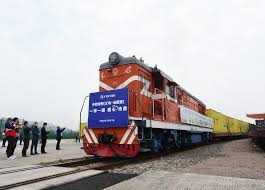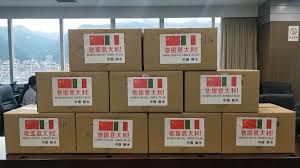Closer China-EU cooperation imperative to post-COVID-19 world

Beijing: The 22nd China-European Union (EU) leaders’ meeting, the first official meeting between Chinese leaders and the new EU leaders, was held via video link on Monday.
The meeting comes at a crucial juncture as the COVID-19 pandemic continues to pose a serious threat to global public health security and economic stability. Against such a backdrop, enhanced cooperation between China and the EU, two major economies, is needed more than ever.
One major area the two sides can and should step up cooperation in is the arduous fight against the deadly pathogen. At the moment, China has largely brought the coronavirus outbreak under control, and the epidemic situation in Europe is improving.

With their combined experience of battling the coronavirus and curing the infected, China and the EU can join hands to help those countries that are still grappling with the pandemic and promote a more effective global response to this unprecedented health crisis.
Vaccines are the ultimate weapon against the virus. By working together more closely, the two sides can pool more of their medical resources and research power so that an effective vaccine can be available as soon as possible.
The COVID-19 pandemic has also exposed some of the deep-seated problems besetting global health governance, which is being further constrained as Washington is threatening to quit the World Health Organization (WHO). Beijing and Brussels should continue to support the indispensible role of the WHO in the ongoing pandemic battle, and improve the global health governance in preparation for future health crises.
One other key area the two sides should step up collaboration in is free trade, and both sides should help stabilize global supply chains and join others around the world in bringing about recovery of the global economy.
China and the EU have long shared a broad consensus on strengthening practical cooperation in such fields as the economy, trade and investment. The China-Europe freight trains, the number of which hit a new high of 1,033 in May, was up 43 percent year on year; this is also a stellar example of how China and Europe can stand together in the face of the coronavirus challenge.
Closer bilateral cooperation will send a strong message to the world in support of free trade and an open world economy in an age when protectionism seems to be gaining momentum.
Meanwhile, despite the COVID-19 disruptions, China and the EU, which account for one third of global gross domestic product, remain committed to concluding a comprehensive bilateral investment agreement this year.
A timely conclusion of the China-EU investment treaty is of great importance for both sides to harness the complementarity of their respective economies and help them play a vital role in stabilizing the global supply chains and reviving the world economy.
Ultimately, Beijing and Brussels need to combine their forces to fend off protectionism and uphold multilateralism in this increasingly interconnected world.
In the past few years, China and the EU have proven themselves to be persistent defenders of the rules-based multilateral system. They should use this leaders’ meeting as an opportunity to strongly endorse multilateralism.
The world has been grappling with the formidable challenges of uncertainty and chaos even before the COVID-19 outbreak as the spectres of protectionism and unilateralism have been rearing their ugly heads across the globe. Amid the coronavirus pandemic, the temptation of beggar-thy-neighbor policies threatens to further derail global cooperation on critical issues such as climate change.
The COVID-19 crisis should be regarded as a sobering reminder that global crises need global solutions, not a short-sighted excuse to retreat into one’s own borders and resort to economic nationalism and protectionism.
The world has been caught off guard by the COVID-19 pandemic. However, countries around the world should work together to overcome this global health crisis, and not be crushed by it. This is the task that both China and the EU now face.





